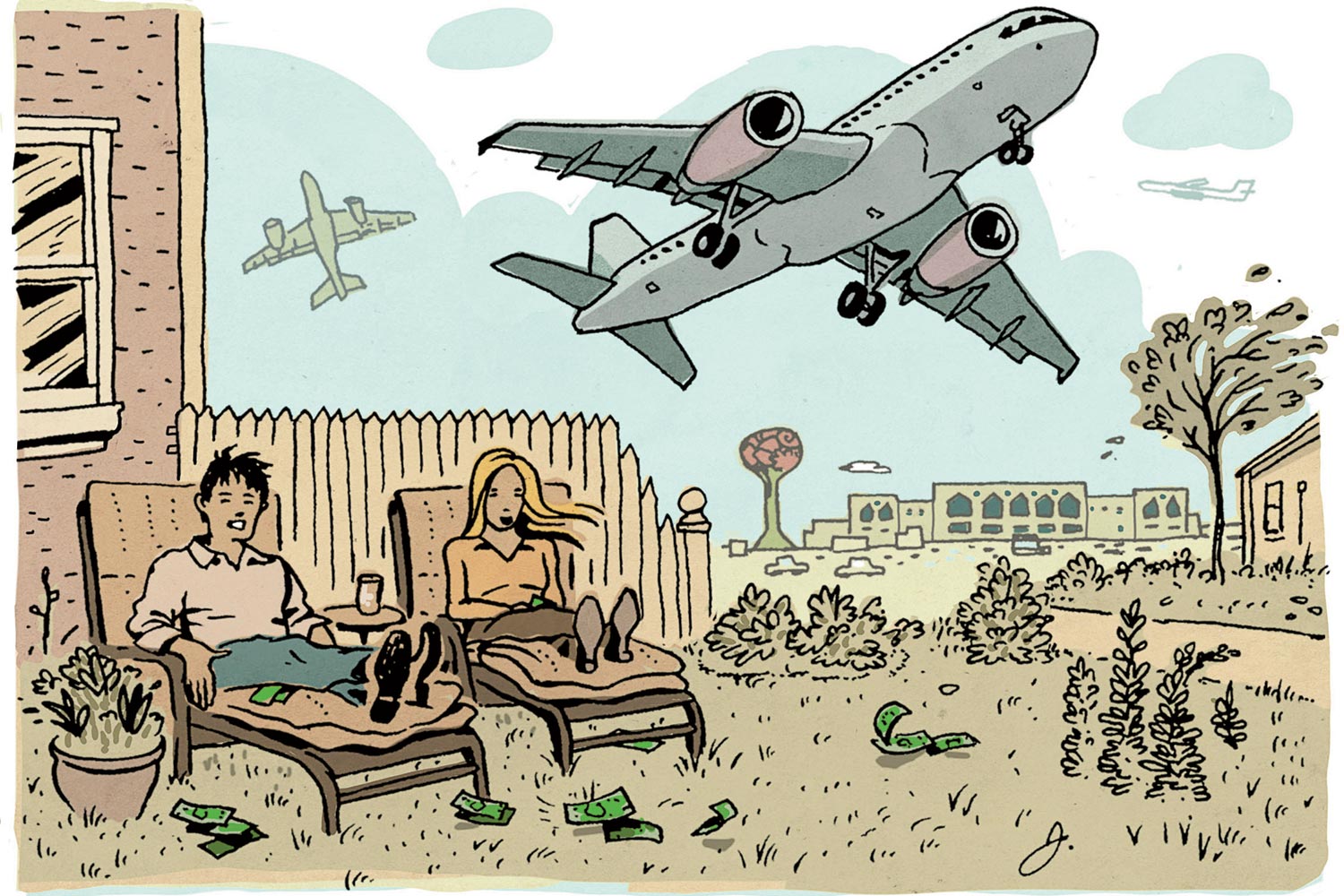Let’s say you live close enough to O’Hare that nearly all of life’s moments are accompanied by the incessant roar of jet engines and that hordes of conventioneers invade your hamlet on a daily basis. What kind of perk might make this whole situation a little rosier?
An annual check for about $4,800 is a good start. That was the average grant given to Rosemont homeowners to offset the bulk of their 2017 property taxes. The program has been in place for more than 20 years, a sweet deal as escalating property taxes continue to be a pain point for homeowners across the metro area. That’s likely one reason you rarely see a sale sign planted in a Rosemont yard.
But houses are changing hands there, real estate agent Jan Goczkowski says, just rarely on the open market. Instead, community residents appear to mostly buy and sell among themselves, often within families. Despite the insularity, home price appreciation in the 60018 ZIP code, which includes Rosemont and part of Des Plaines, has outpaced that of the larger metro area over the past five years, according to industry tracker Attom Data Solutions. More than 200 homes sold in the first three quarters of 2018, according to the most recent data available, an increase of about 64 percent from all of 2008, the year the housing market crashed.
Rosemont’s grants are intended to be a revenue-sharing program for its 4,200 residents, a cut of the airport-adjacent economy that draws some 100,000 people to the village each day, says Mayor Brad Stephens. The village calculates the individual amounts using a formula based on the assessed value of a property. All told, $1.2 million was doled out to residents for 2017. Rosemont covers the tab with tax revenue from Allstate Arena and the rest of its local-cable-TV-level-sports venues, along with its convention center, outlet mall, and copious restaurants.
If not paying taxes is your thing, you have options. Thirty-seven municipalities in Illinois, including Oak Brook, Gurnee, Vernon Hills, and eight other Chicago suburbs, did not levy property taxes at all in 2017. Ain’t nothing in life free, though: Turning every resident into Wesley Snipes can be a risky practice since it makes towns more vulnerable to economic downturns. “I would imagine when things crop up like pensions, it would be untenable for a lot of communities to not have property taxes,” says Mike Belsky, executive director of the Center for Municipal Finance at the University of Chicago. Take, for example, the southwest suburb of Countryside, which is another property-tax-free zone. The city was forced to temporarily reinstate the tax for four years, from 2010 to 2013, because the recession hit its nine car dealerships hard, says Mayor Sean McDermott. But that blip behind it, the lack of a municipal property tax has been a selling point for young families shopping around.
It’s a positive for Rosemont, too, that it can shift its tax burden on to visitors, because the grants encourage residents to spend their money on other things, like improving their properties, Belsky says. And it leaves them plenty of cash for daily essentials, like, you know, high-end noise-canceling headphones.



